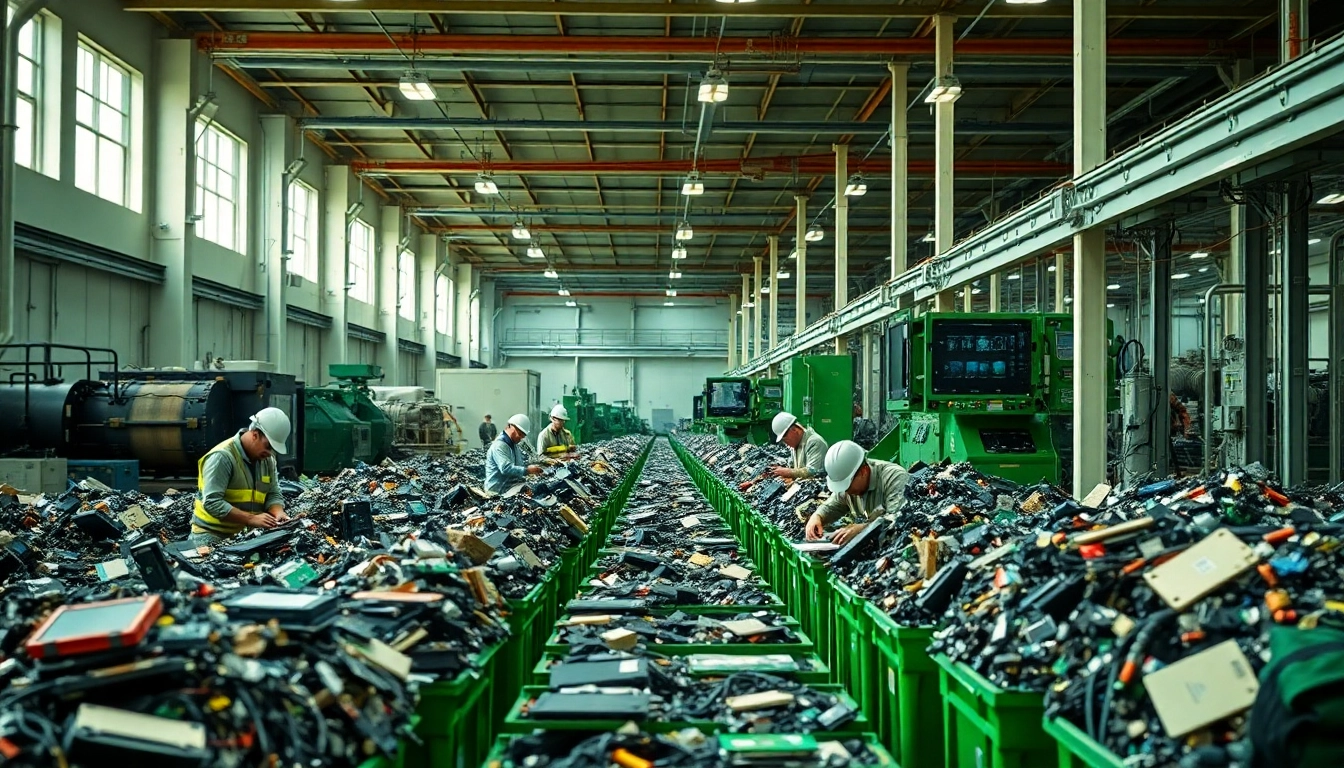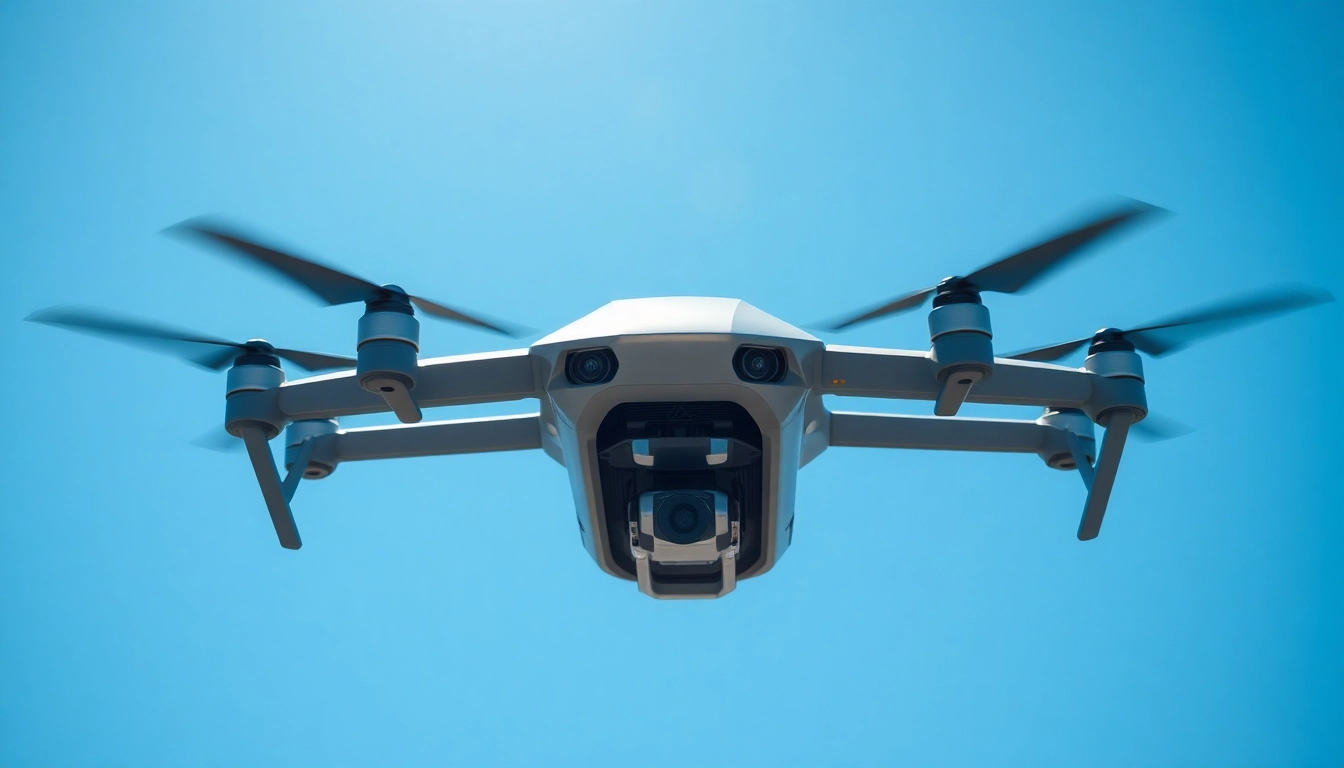Understanding IT Recycling in Newbury
As technology advances at an unprecedented pace, the need for efficient and responsible IT recycling has never been more critical. In Newbury, businesses and individuals alike are becoming increasingly aware of the importance of sustainably disposing of electronic waste, also known as e-waste. Through effective IT recycling, we can minimize environmental impact while recovering valuable materials from outdated technology. To gain insights about effective recycling practices in the area, explore it recycling newbury.
What is IT Recycling?
IT recycling entails the process of collecting, processing, and repurposing electronic devices that are no longer useful. This can include a vast array of items ranging from computers and laptops to mobile devices and other electronic equipment. The primary goal of IT recycling is to recover useful materials and components while ensuring that harmful substances are disposed of safely and ethically.
Importance of Responsible Recycling
Responsible recycling practices are crucial for several reasons. Firstly, improper disposal of electronic waste can lead to significant pollution, as many devices contain toxic materials that can leach into soil and groundwater. Secondly, recycling helps conserve natural resources by recovering metals, plastics, and glass used in manufacturing electronics. Lastly, responsible practices promote a sustainable circular economy wherein materials are reused and waste is reduced, contributing positively to environmental conservation.
Overview of Local Resources
Newbury is home to a range of local resources for IT recycling, including dedicated facilities and community-driven initiatives. These organizations provide options for safe disposal and recycling of electronic devices, assisting both individuals and businesses in managing their e-waste effectively. Many facilities offer certified recycling services that comply with environmental regulations, ensuring that your electronics are handled responsibly.
Common Types of Electronics Recycled
Computers and Laptops
Computers and laptops are among the most common items recycled during IT recycling initiatives. Many components, such as motherboards, hard drives, and metals, can be salvaged and reused. By recycling these devices, we decrease the demand for raw materials and promote a more sustainable manufacturing process.
Mobile Devices
Mobile devices, including smartphones and tablets, are rapidly becoming obsolete as technology evolves. These devices often contain valuable materials such as precious metals that can be recovered through recycling. Additionally, many local facilities have specialized processes for safely disposing of mobile devices, including data destruction and environmentally friendly material recovery.
Other Electronic Equipment
Beyond computers and mobile devices, a variety of other electronic equipment can be recycled. This includes printers, monitors, televisions, and household appliances. Each of these items contains electronic components that can be valuable when recovered. Proper recycling helps mitigate the environmental impact of discarded electronics by removing hazardous materials and redistributing resources.
Best Practices for IT Recycling Newbury
Preparation of Devices for Recycling
Before recycling any electronic devices, preparation is key. Start by removing accessories such as cables and peripherals that might not be accepted in a recycling program. Ensure that all personal information is backed up and removed from the device to safeguard your privacy. Physically clean the device to prepare it for transport, as this can make processing easier for the recyclers.
Data Protection and Wiping
Data protection is critical in the IT recycling process. It is important to securely wipe all personal information from devices. Utilize software that meets industry standards for data destruction or consult with professional recyclers that offer certified data destruction services. This prevents identity theft and protects sensitive information from unauthorized access.
Finding Certified Recyclers
Always seek out certified recyclers when disposing of electronics. Certifications ensure that the facility follows environmental regulations and practices responsible recycling methods. Research local options and check for compliance with standards such as R2 (Responsible Recycling) or e-Stewards, which signify high levels of accountability in electronic waste management.
Environmental Impact of E-Waste
Consequences of Improper Disposal
Improper disposal of e-waste can have dire consequences for the environment. Toxic substances found in electronics, such as lead, mercury, and cadmium, can seep into the ground and contaminate water sources. This pollution poses threats to wildlife, ecosystem health, and human populations. Moreover, landfill overflow exacerbates the issues related to waste management and resource depletion.
Benefits of Recycling
The benefits of recycling electronics extend far beyond environmental protection. Recycling conserves energy and resources, as manufacturing with reclaimed materials generally requires less energy than using virgin materials. Furthermore, recycling supports economic growth by creating jobs in the recycling and refurbishment sectors while fostering innovation in recycling technologies.
Local vs. Global Recycling Challenges
While local recycling initiatives are essential, global challenges persist in managing e-waste. Many developed countries export their e-waste to developing nations, where regulations may be less stringent. This can lead to hazardous disposal practices and environmental degradation in those regions. Addressing these challenges necessitates a collaborative international approach to develop effective recycling standards and practices.
Frequently Asked Questions About IT Recycling Newbury
What types of electronics can be recycled?
Most electronic devices can be recycled, including computers, laptops, mobile phones, televisions, printers, and other household appliances. Ensure they are cleaned and prepared before dropping them off at a recycling facility.
How can I ensure my data is safe?
To ensure data safety, wipe your devices using data destruction software or consult professional recyclers offering certified data destruction services, preventing unauthorized access to your information.
Are there any costs associated with recycling?
Many recycling facilities offer free drop-off options for electronics, but some may charge fees for specific services, such as data destruction. Always check with your chosen facility before proceeding.
How do I find a recycling facility in Newbury?
Finding a recycling facility in Newbury can be as simple as searching online for local e-waste recycling centers or community programs. You can also inquire at local electronics retailers for potential recycling services.
What is the recycling process like?
The recycling process typically begins with the collection of electronic devices, followed by data wiping, disassembly, and separation of recyclable materials. Recyclers then process these materials for reuse in manufacturing.




